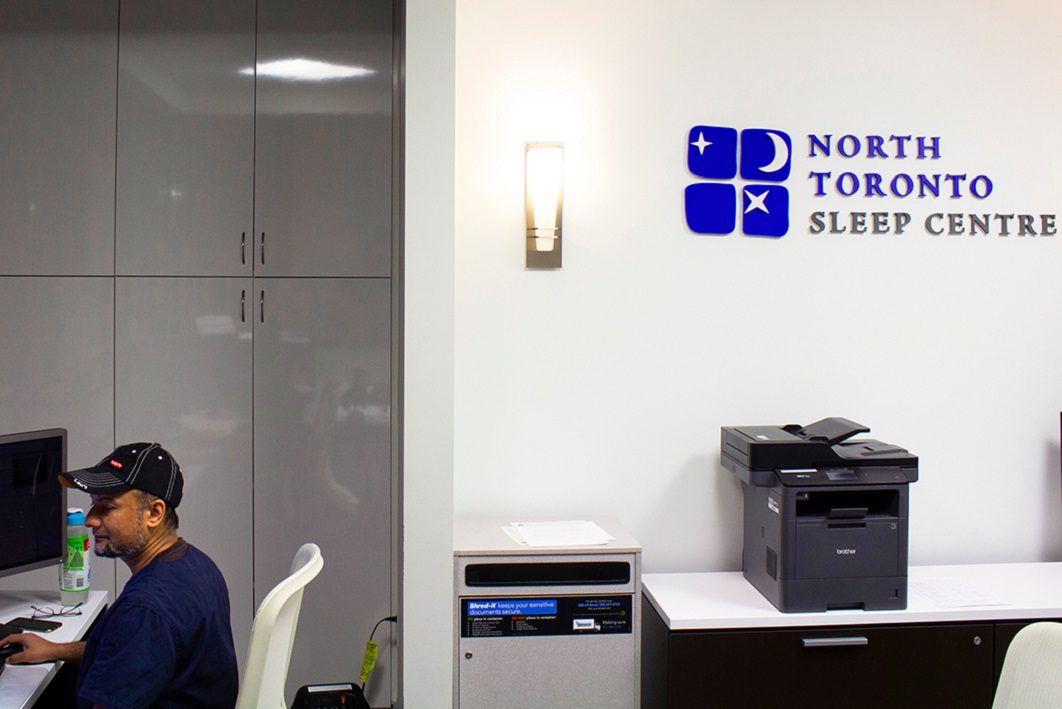Inside the North York Sleep Centre, the front desk is one of the only lit areas at 4 a.m. Mahbubul Islam is working the night shift. He is awake so others can sleep.
For the past six years, the technologist has spent his nights sitting in front of three bright monitors, each displaying active vital sign graphs and video camera shots of 12 sleeping patients undergoing testing.
In 2011, Islam, 48, his wife Ferdousi Jahan, nicknamed Luna, 46, and their daughters Lamiya and Labiba, 16 and nine, landed by plane at Toronto’s Pearson International Airport. They lived in an apartment on Eglinton Street and Markham Road, and purchased a home across the street 11 months later.
Growing up in Bangladesh’s capital of Dhaka, life for Islam and his four siblings was comfortable. His father worked as a respected government official while his mother took care of the children until she passed away from cancer when Islam was a teenager.
Islam and two of his siblings pursued careers in medicine. In 2001, he graduated from the University of Edinburgh in the U.K. and worked for the United Nations as head of Adolescent Health and HIV/Aids, travelling the world as a program manager.
That all changed when Islam decided to move his family to Canada eight years ago.
“I knew it wasn’t good for my career, but it’s for my kids that I came,” Islam says. “So I’m sacrificing. I sacrificed my career (for) the development of my next generation.”
In Toronto, Islam isn’t a doctor – he’s a sleep technologist. His wife, who was an economist in Bangladesh, now serves coffee at Tim Hortons.
(Story continues below)

“It doesn’t matter what I do for work … I just want my daughters to see that I came here for them.”
-Mahbubul Islam
Immigrants will make up almost 30 per cent of the Canadian population by 2036, according to a 2017 report by Statistics Canada. For immigrants who arrived after 2012, “the lack of recognition of foreign credentials” is a prominent challenge, alongside language barriers and unfamiliarity with the Canadian labour market.
That’s keeping Toussaint Manga, a Senegal government diplomat and an on-call doctor, from moving to Canada. He travels the world representing his home country. He has family in Canada but fears joining them would set him back professionally.
“If I move to Canada, it will be almost impossible to work as a doctor,” Manga says in a phone conversation. “I would have to go back to school and start from the beginning.”
It’s an issue the College of Family Physicians of Canada’s (CFPC) is working on. The college’s website says its staff “recently began a project to review standards of training and certification in international jurisdictions,” acknowledging the significant number of immigrant physicians in Canada who can benefit from expedited licensure for practice.
Islam’s night shift is ending; the sun is rising. As he returns to his Scarborough home, he walks through the door to find his daughters getting ready for school.
Islam says Lamiya and Labiba are excited to be in Canada. He hopes growing up in Canada will give them opportunities that he didn’t have.
“It doesn’t matter what I do for work,” he says. “I just want my daughters to see that I came here for them.”
Check out more Toronto at 4 a.m. content here:
Online: Torontoobserver.ca/toronto-at-4-am
Instagram: @6ix_at_4
Twitter: @6ix_at_4
Facebook: Torontoat4am

